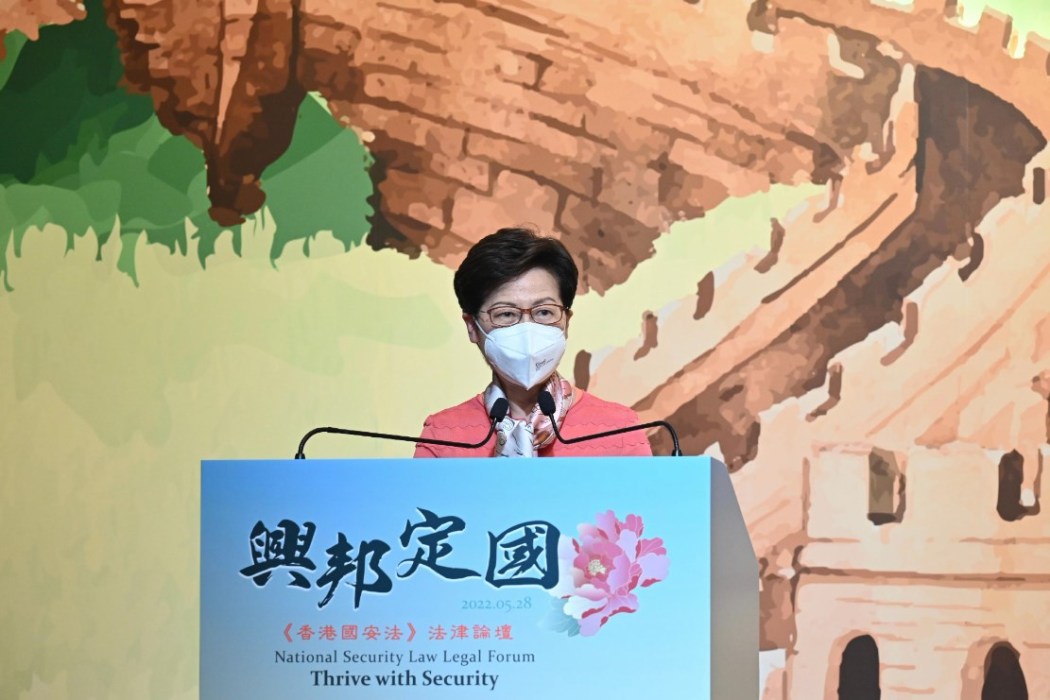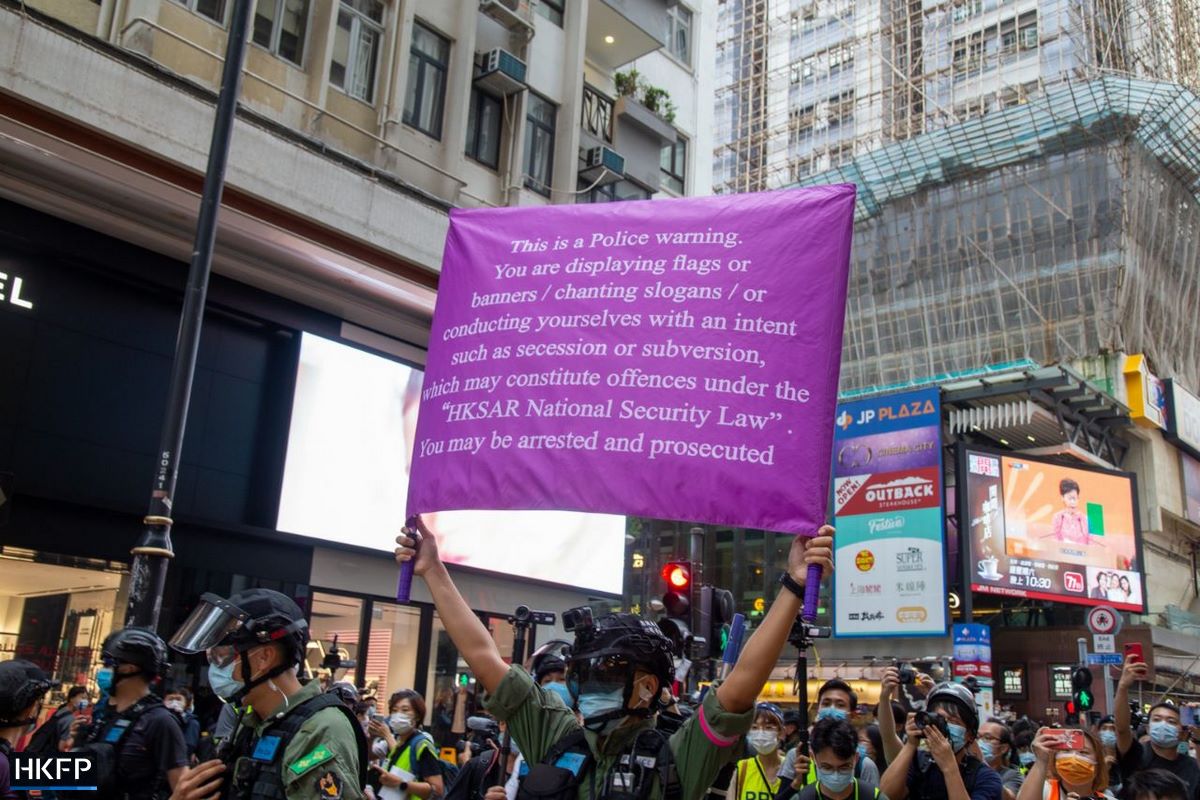The passing of the Beijing-mandated national security law was a “glorious mission” though there are still “underground organisations advocating terrorism,” Hong Kong’s incumbent leader Carrie Lam has said.
Speaking at a legal forum on the national security law, Lam said the legislation punished illegal activity endangering China’s security and restored stability in the city following months of violence linked to the 2019 pro-democracy protests: “[I] felt a great sense of responsibility. It was a glorious mission.”

The legal forum – which bore the theme “thrive with security” – saw senior government officials and legal scholars discuss the implementation of the legislation since its enactment on June 30, 2020. Zheng Yanxiong, head of the national security agency, also gave a speech.
Lam said the fact that the forum was held on the two-year anniversary of May 28, 2020 – when the National People’s Congress adopted a resolution paving the way for the national security law – gave the event “additional significance.”
The Asia chairperson of US-based law firm Davis Polk & Wardwell, Martin Rogers, withdrew from Saturday’s forum following criticism that it was a “propaganda event.”

The security law, which bypassed local legislature and was inserted by Beijing directly into the city’s mini-constitution, criminalised subversion, secession, collusion with foreign forces and terrorist acts, which were broadly defined to include disruption to transport and other infrastructure.
The move gave police sweeping new powers, alarming democrats, civil society groups and trade partners, as such laws have been used broadly to silence and punish dissidents in China. However, the authorities say it has restored stability and peace to the city.
Countdown to end of term
Lam will complete her leadership term on June 30. John Lee, the city’s former number two official who ran uncontested in the chief executive small-circle race earlier this month, will succeed her.
According to the Security Bureau, 150 people have been arrested under the national security law. They include scores of high-profile pro-democracy lawmakers and activists.

In April, a student became the fourth person jailed under the security law after he was sentenced to five years in jail for inciting secession. He was accused of selling weapons on messaging app Telegram and posting pro-independence messages.
Lam added that Hong Kong’s work relating to the safeguarding of national security was “still in its initial stages.”
“The chief executive must recognise that the situation remains serious and complex, and the implementation of the law still faces many challenges,” she said.
She claimed, without pointing to evidence, that there were “local radicals” and “underground organisations advocating terrorism” who were still “lurking around.”
“I call on the next government to further raise, among the governing team, their political and national security awareness, big picture thinking and a dare-to-fight spirit,” she said.
Support HKFP | Policies & Ethics | Error/typo? | Contact Us | Newsletter | Transparency & Annual Report | Apps
Help safeguard press freedom & keep HKFP free for all readers by supporting our team























